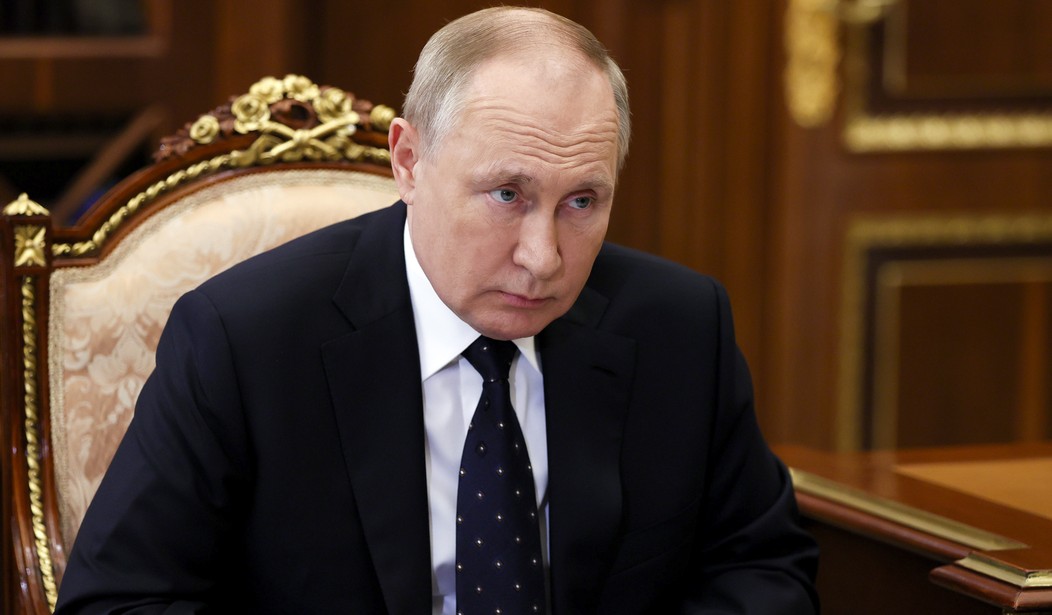Is it possible that Russian President Vladimir Putin is singing his swan song in Ukraine as the world watches? When he first launched Russia’s invasion of Ukraine on Feb. 24, it was believed his forces would swarm the country and promptly topple its government. The world expected a quick victory for Moscow.
But none of that happened.
Now, the two countries are embroiled in a bitter military conflict nearly three weeks later, and the Russian military has made minimal progress towards achieving their goal. International opinion is decidedly against Moscow’s actions — an occurrence, it appears, Putin did not predict. The United States and other nations have been supplying Ukraine with weapons and military equipment to push back the invasion.
Even worse for Putin, anti-war sentiments in Russia and even in the Kremlin are becoming even more prominent. Members of his government have helped Ukrainian President Volodymyr Zelensky escape three alleged assassination attempts. Moscow’s military has already suffered a significant number of losses, and even some of its soldiers are questioning the need to attack its neighbor.
Of course, it is important to note that Putin has positioned himself in a way that would make it hard for him to lose power. His regime has murdered dissidents and journalists who spoke out against him and created an environment of fear in Russia. Moreover, he has made the country’s elites and its oligarchs dependent on him. He is the one who enables them to maintain their status and to ensure they remain ensconced in their lofty positions.
Like other strongmen, the Russian leader has put several measures in place to insulate him from threats to his presidency. Nevertheless, he is not invincible. The world has already seen that a Russian victory in Ukraine is not certain and that Putin isn’t quite the Leviathan he portrays himself to be.
In a piece for The Hill, contributor Alexander Motyl observed that Ukraine, so far, has been effective in pushing back against Russian aggression. “The Ukrainian army has fought the Russians to a standstill, imposed enormous costs in lives, planes, helicopters, tanks and armored personnel carriers, and is poised for a counter-offensive. Most Ukrainians, and especially expert military analysts, predict victory,” he wrote.
Motyl also noted the response from the West, which was likely far more than Putin anticipated. He wrote:
Horrified by Putin’s unprovoked onslaught, the West imposed exceptionally severe sanctions on Russian elites, banks, businesses, airlines and shipping, and closed down the North Stream 2 pipeline. Scores of international businesses left the Russian market. The Russian economy has been thrown into near-Soviet conditions of almost total isolation from the world economy. Inflation and unemployment will rise, the GDP will crash, and living standards will decline precipitously. Even the oligarchs and superrich have lost billions of dollars in the stock market as a result of the ruble’s devaluation.
One of Putin’s mistakes was that he miscalculated the actual cost of the invasion, it is possible that it has placed him in a precarious position. Sure, he has the support of the elite class and oligarchs, who largely depend on him to maintain their status. But what happens when the Russian leader no longer has the power and influence to keep them rich, fat, and happy? Motyl suggested that a variety of factors could lead to Putin’s political – and possibly physical – demise.
“The combination of popular protest, elite machinations, state failure, declining legitimacy, a grinding war, and international isolation inevitably will have only one outcome: Putin’s ouster,” the author wrote. He continued:
Some analysts suggest that he risks assassination. Others argue that, since Putin is ensconced in a bunker, decapitating him need not entail physical violence. It can be achieved by severing the “thin thread” that binds him to Russia’s executive institutions. Putin can be neutralized simply by being completely isolated.
Author Francis Fukuyama, in a piece for American Purpose, also predicted that “Russia is heading for an outright defeat in Ukraine.”
Noting also that Russia was counting on a swift victory, Fukuyama explained that the Russian president “has committed the bulk of his entire military” to the invasion and that “there are no vast reserves of forces he can call up to add to the battle.” Perhaps this is why Putin is seeking to enlist mercenaries from the Middle East to aid in the war effort. From Fox News:
Putin and his defense minister, Sergei Shoigu, recently declared that as many as 16,000 combatants from the Middle East will enter the Ukrainian war on the side of Russia. The promised pay, according to news reports, is around $3,000 per month.
Of course, there is still the possibility that Putin’s invasion will be a success. But even in this scenario, the Russian leader might still be in peril after having conducted a military operation that is becoming increasingly unpopular in his country. It could turn into a pyrrhic victory, one in which the cost far outweighs the benefit. With the rest of the world against him, it will be difficult for Putin to survive the coming backlash. But who knows? In this type of situation, almost anything could happen.














